
Merck Anti-Glycosaminoglycan Antibody, skin specific Antibody, clone PG-4
✨AI 추천 연관 상품
AI가 분석한 이 상품과 연관된 추천 상품들을 확인해보세요
연관 상품을 찾고 있습니다...
Anti-Glycosaminoglycan Antibody, skin specific Antibody, clone PG-4
clone PG-4, from mouse
Proteoglycan, Dermatan sulfate, Chondroitin sulfate
Proteoglycans (PG), present in all tissues, are one of the best-studied classes of matrix molecules. Over 50 members of PG have been characterized and studied for their biological significance. PG consist of a protein core to which glycosaminoglycan chains are covalently linked. Glycosaminoglycans (GAGs) are natural heteropolysaccharides that are present in every mammalian tissue. They are composed of repeating disaccharide units that consist of either sulfated or non-sulfated monosaccharides. Their molecular size and the sulfation type vary based on tissue type. The major types of GAGs found in mammalian tissues are: hyaluronan, chondroitin sulfate, and dermatan sulfate, heparin and heparan sulfate, and keratan sulfate. GAG chains are covalently bound to serine residues of the PG protein core via a tetrasaccharide linkage, consisting of xylose, two galactose residues and glucuronic acid. This antibody, clone PG-4, recognizes antigen that is associated with extracellular matrices and surfaces of cultured human dermal fibroblasts and the surfaces of cultured human adult keratinocytes. This antibody recognize native epitopes located within glycosaminoglycan chains and is detects both chondroitin sulfate (Versican) and dermatan sulfate (Decorin and Biglycan) proteoglycans. Treatment of PG with chondroitinases is reported to abolish its immunoreactivity for all antigens. (Ref.: Afratis, N et al. (2012). FEBS Journal 279 (7); 1177-1197; Sorrell, JM et al. (1999). Histochem. J. 31 (8); 549-558).
🏷️Merck Sigma 상품 둘러보기
동일 브랜드의 다른 상품들을 확인해보세요
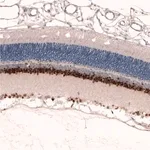
Merck Sigma
Merck Monoclonal Anti-PAX6 antibody produced in mouse
370,530원
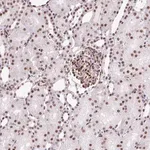
Merck Sigma
Merck Anti-LUC7L2 antibody produced in rabbit
370,530원
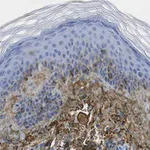
Merck Sigma
Merck Anti-Glycosaminoglycan Antibody, skin specific Antibody, clone PG-4
486,900원
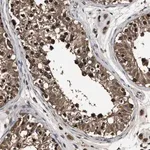
Merck Sigma
Merck Anti-RNF114 antibody produced in rabbit
817,800원
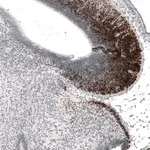
Merck Sigma
Merck Anti-BARHL1 antibody produced in rabbit
817,800원
배송/결제/교환/반품 안내
배송 정보
| 기본 배송비 |
| 교환/반품 배송비 |
|
|---|---|---|---|
| 착불 배송비 |
| ||
| 교환/반품 배송비 |
| ||
결제 및 환불 안내
| 결제수단 |
|
|---|---|
| 취소 |
|
| 반품 |
|
| 환급 |
|
교환 및 반품 접수
| 교환 및 반품 접수 기한 |
|
|---|---|
| 교환 및 반품 접수가 가능한 경우 |
|
| 교환 및 반품 접수가 불가능한 경우 |
|
교환 및 반품 신청
| 교환 절차 |
|
|---|---|
| 반품 절차 |
|
